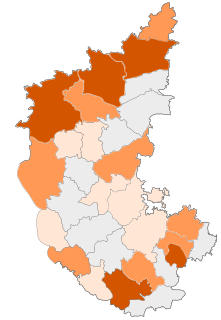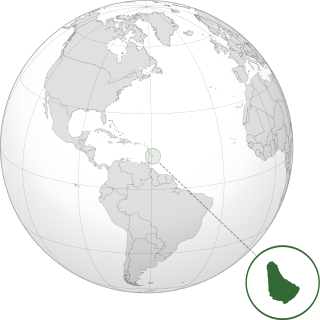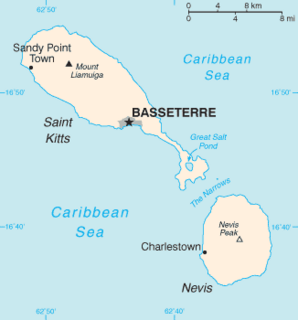
The first confirmed case of the pandemic of coronavirus disease 2019 (COVID-19) in the United Arab Emirates was announced on 29 January 2020. It was the first country in the Middle East to report a confirmed case. The first patient, a 73-year-old Chinese woman, was released on 9 February after recovering. The first two deaths were confirmed on March 20. On 22 March, Dubai started an 11-day sterilisation campaign as an effort to contain the coronavirus. Night curfew was imposed 4 days later while the country began disinfection. School closure was first announced on March 8 for 4 weeks. 3 weeks later, it was announced that school will be closed until the end of the academic year.

The first case of the 2019–20 coronavirus pandemic in India was reported on 30 January 2020, originating from China. As of 3 May 2020, the Ministry of Health and Family Welfare have confirmed a total of 40,263 cases, 10,887 recoveries and 1306 deaths in the country. Experts suggest the number of infections could be much higher as India's testing rates are among the lowest in the world. The infection rate of COVID-19 in India is reported to be 1.7, significantly lower than in the worst affected countries.
The 2020 coronavirus pandemic in Sri Lanka is an ongoing viral pandemic of coronavirus disease 2019 (COVID-19), a novel infectious disease caused by severe acute respiratory syndrome coronavirus 2 (SARS-CoV-2). As of 3 May 2020, 707 confirmed cases have been reported in the country with 7 deaths. On 3 March 2020, the first reported case involving a Sri Lankan origin outside Sri Lanka was reported in Italy. As of 23 March, forty-five quarantine centers have been built in the country by the Sri Lanka Army as a preventive measure to tackle the coronavirus pandemic. Nearly 3,500 people have been under quarantine in 45 quarantine centers which also include 31 foreigners from 14 countries.

The ongoing 2019–20 coronavirus pandemic spread to South Africa with Minister of Health Zweli Mkhize announcing the first confirmed case on 5 March 2020, the patient being a South African returning from Italy.

The 2019–20 coronavirus pandemic was confirmed to have spread to Afghanistan when its index case, in Herat, was confirmed on 24 February 2020.

National responses to the 2019–20 coronavirus pandemic have been varied, and have included containment measures such as lockdowns, quarantines, and curfews. As of late April, there are 2.9 million cases of COVID-19 and over 203,800 deaths in 210 countries and territories around the world. The most affected countries in terms of confirmed cases being the United States, Spain, Italy, France, Germany, the United Kingdom, Turkey and China.

The 2019–20 coronavirus pandemic was confirmed to have reached Bhutan in March 2020.

The 2019–20 coronavirus pandemic was confirmed to have spread to Metro Manila, Philippines on January 30, 2020, when the first case of coronavirus disease 2019 (COVID-19) was confirmed in the City of Manila. After a month of no new cases in the country, the first case of someone without travel history abroad was confirmed on March 5, a 62-year-old male who frequented a Muslim prayer hall in San Juan, Metro Manila, raising suspicions that a community transmission of COVID-19 is already underway in the Philippines. The man's wife was confirmed to have contracted COVID-19 on March 7, which was also the first local transmission to be confirmed. Metro Manila is the worst affected region in the Philippines, where most cases are recorded. A state of calamity and community quarantine have been in place in the region since March 15.

The 2019–20 coronavirus pandemic was confirmed to have reached South Sudan in April 2020. As of May 1, there are 45 confirmed cases of COVID-19 in South Sudan.

The 2020 coronavirus pandemic in Aruba is part of the ongoing global viral pandemic of coronavirus disease 2019 (COVID-19), which was documented for the first time in Aruba on 13 March 2020.

During the 2019–20 coronavirus pandemic, the first case of COVID-19 in the Indian state of Karnataka was confirmed on 9 March 2020. Two days later, the state became the first in India to invoke the provisions of the Epidemic Diseases Act, 1897, which are set to last for a year, to curb the spread of the disease. As of 30 April 2020 evening, there have been 565 confirmed cases with 229 recoveries and 21 deaths in the state.
This article documents the timeline of COVID-19 in Afghanistan.

The 2020 coronavirus pandemic in Barbados is part of the 2019–20 coronavirus pandemic of coronavirus disease 2019 (COVID-19). The outbreak was identified in Wuhan, China, in December 2019, declared to be a Public Health Emergency of International Concern on 30 January 2020, and recognized as a pandemic by the World Health Organization on 11 March 2020. COVID-19 is an infectious disease caused by severe acute respiratory syndrome coronavirus 2 (SARS-CoV-2). The case fatality rate for COVID-19 has been much lower than for other coronavirus respiratory infections such as SARS and MERS, but the transmission has been significantly greater, with a significant total death toll.
The Indian state governments have responded to the 2020 coronavirus pandemic India with various declarations of emergency, closure of institutions and public meeting places, and other restrictions intended to contain the spread of the virus.

The 2020 coronavirus pandemic in Turks and Caicos Islands is part of the ongoing global viral pandemic of coronavirus disease 2019 (COVID-19), which was confirmed to have reached the British Overseas Territory of the Turks and Caicos Islands on 23 March 2020, and the first death occurred on 5 April 2020.
On 24 March 2020, the Government of India under Prime Minister Narendra Modi ordered a nationwide lockdown for 21 days, limiting movement of the entire 1.3 billion population of India as a preventive measure against the 2020 coronavirus pandemic in India. It was ordered after a 14-hour voluntary public curfew on 22 March, followed by enforcement of a series of regulations in the country's COVID-19 affected regions. The lockdown was placed when the number of confirmed positive coronavirus cases in India was approximately 500.

The 2020 coronavirus pandemic in Saint Kitts and Nevis is part of the ongoing global viral pandemic of coronavirus disease 2019 (COVID-19), which was confirmed to have reached Saint Kitts and Nevis on 24 March 2020.
The first case of the 2019–20 coronavirus pandemic was confirmed in Goa on 25 March 2020. The state has confirmed a total of 7 cases, all of whom have recovered as of 20 April 2020.

The first case of the 2019–20 coronavirus pandemic in the Indian state of Tamil Nadu was reported on 7 March 2020. The Department of Health and Family Welfare has confirmed a total of 2,757 cases, including 29 deaths and 1,341 recoveries, as of 2 May 2020. As of 20 April 2020, 1302 out of 1,520 (86%) cases were from one cluster linked to a Tablighi Jamaat religious congregation event that took place in Delhi.

The first case of the 2019–20 coronavirus pandemic in the Indian state of Rajasthan was reported on 2 March 2020 in Jaipur. The Rajasthan Health Department has confirmed a total of 2,886 cases, including 71 deaths and 1,356 recoveries, as of 3 May 2020. 29 districts in the state have reported confirmed cases of which, Jaipur is the worst-affected. According to Union Health ministry, 8 districts in the state are in Red zone, 19 districts are in Orange zone and 6 districts are in Green zone.















